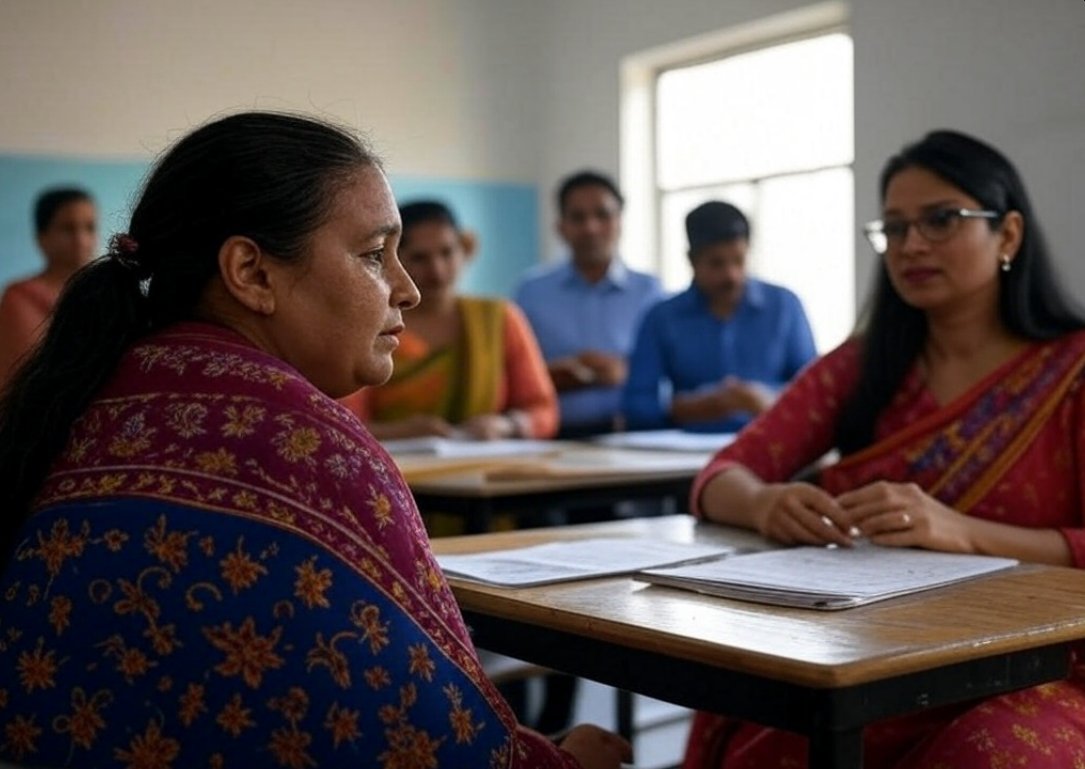CBSE Mandates 50 Hours of Annual Teacher Training with a Focus on STEM Education for 2025

Introduction
The Central Board of Secondary Education (CBSE), a cornerstone of India’s educational framework, has introduced a significant initiative to enhance the quality of teaching across its affiliated schools. According to recent reports, CBSE has mandated that all teachers and school leaders complete 50 hours of professional training annually, starting in 2025. This requirement, aligned with the transformative goals of the National Education Policy (NEP) 2020, aims to equip educators with the skills and knowledge needed to meet the demands of modern education. With a specific emphasis on STEM (Science, Technology, Engineering, and Mathematics) education for 2025, this mandate underscores CBSE’s commitment to fostering innovative and effective teaching practices.
Background and Alignment with NEP 2020
The NEP 2020, a landmark policy aimed at overhauling India’s education system, emphasizes the critical role of continuous professional development (CPD) for teachers. It recommends that educators engage in 50 hours of CPD annually to stay abreast of pedagogical advancements and improve classroom outcomes. CBSE’s mandate appears to be a direct response to this recommendation, integrating the policy’s vision into its framework. Additionally, the training aligns with the National Professional Standards for Teachers (NPST), which set benchmarks for teacher quality and accountability. This alignment ensures that the training is not only a requirement but also a structured pathway to elevate educational standards.
Structure of the Training Program
The 50-hour CPD mandate is designed to be comprehensive and flexible, allowing teachers to balance professional development with their teaching responsibilities. Based on available information, the training is structured as follows:
| Component | Details |
|---|---|
| Total Hours | 50 hours per year, mandatory for all teachers and school leaders. |
| Training Sources | - 25 hours through CBSE or government regional training institutes. |
| - 25 hours through in-house or school complex-based training programs. | |
| Focus Areas | - Core Values and Ethics: 12 hours |
| - Knowledge and Practice: 24 hours | |
| - Professional Growth and Development: 14 hours | |
| 2025 Theme | STEM Education, emphasizing hands-on, interdisciplinary learning. |
The division of hours ensures a balance between standardized training provided by CBSE and localized, school-specific programs that address unique needs. The focus areas cover essential aspects of teaching, from ethical practices to practical classroom strategies, ensuring a holistic development approach.
Emphasis on STEM Education for 2025
For the 2025 academic session, CBSE has designated STEM education as the central theme of the training program. This focus reflects the growing importance of science, technology, engineering, and mathematics in preparing students for a technology-driven world. Schools are encouraged to conduct local deliberations to share innovative STEM teaching strategies, fostering a collaborative environment where educators can exchange best practices. This emphasis on hands-on, interdisciplinary learning aims to make STEM subjects more engaging and accessible, ultimately enhancing student interest and proficiency in these critical areas.
Recognized Activities for CPD Hours
To make the mandate practical, CBSE has outlined that certain professional activities can count toward the required 50 hours. These include:
- Board Exam Duties: Tasks such as invigilation or evaluation.
- Research Work: Academic research contributing to educational advancements.
- CBSE Conferences: Participation in board-organized events.
- Digital Content Development: Creating educational resources for classroom use.
This recognition allows teachers to integrate their routine responsibilities with professional development, reducing the burden of additional training hours. However, specific guidelines on how these activities are tracked or credited remain unclear in the available reports.
Implementation and School Responsibilities
CBSE-affiliated schools play a pivotal role in implementing the mandate. They are tasked with organizing the 25 hours of in-house or school complex-based training, which may include workshops, peer-learning sessions, or collaborations with other schools. Additionally, schools must facilitate local deliberations to promote STEM teaching strategies, ensuring that the 2025 theme is effectively integrated into their training programs. While the mandate provides a clear framework, the success of its implementation will depend on schools’ ability to allocate resources and coordinate training effectively.
Potential Impact on Teaching and Learning
The 50-hour training mandate is poised to have a transformative impact on India’s education system. By investing in teacher development, CBSE aims to:
- Enhance Teaching Quality: Equip educators with modern pedagogical tools and techniques.
- Improve Student Outcomes: Foster engaging and effective classroom environments.
- Promote Lifelong Learning: Encourage teachers to embrace continuous professional growth.
The focus on STEM education is particularly timely, given the global demand for skills in these fields. By prioritizing hands-on learning, the mandate seeks to make STEM subjects more appealing, potentially increasing student participation in science and technology-related careers. However, the mandate’s success will hinge on its execution, including the quality of training programs and the support provided to teachers.
Challenges and Uncertainties
While the mandate is a step toward educational excellence, some aspects remain uncertain. For instance, there is limited information on how CBSE will monitor compliance or ensure the quality of school-based training. Additionally, the mandate may place an extra burden on teachers, particularly those in resource-constrained schools, who must balance training with their existing workloads. Teacher feedback, which could shed light on these challenges, is not widely reported in available sources. Furthermore, while the NEP 2020 suggests maintaining an e-portfolio to document CPD activities, it is unclear whether CBSE has adopted this practice or implemented a different tracking system.
Broader Context: NEP 2020 and CPD
The concept of 50 hours of CPD is not new to India’s educational landscape. The NEP 2020, in paragraphs 5.15 and 5.16, outlines the need for teachers to engage in continuous learning through various modes, including face-to-face workshops, online courses, and blended learning. A 2022 guideline from the National Council of Educational Research and Training (NCERT) further elaborates on this, recommending a “cafeteria approach” where teachers can choose programs based on their needs. It also suggests that activities like paper publications, action research, and field visits count toward CPD hours, a practice CBSE appears to have adopted. While CBSE’s 2025 mandate builds on these foundations, it introduces specific requirements, such as the STEM focus and the split between CBSE and school-based training, tailored to its affiliated schools.
Conclusion
CBSE’s mandate for 50 hours of annual teacher training is a forward-thinking initiative that aligns with global trends in educational reform. By prioritizing STEM education for 2025 and integrating professional development into teachers’ routine activities, CBSE is paving the way for a more dynamic and responsive education system. While challenges such as implementation and teacher workload remain, the mandate’s potential to elevate teaching standards and student outcomes is significant. As schools and educators prepare for 2025, this initiative represents a crucial step toward realizing the vision of NEP 2020, ensuring that India’s teachers are well-equipped to shape the future of education.
- Log in to post comments
